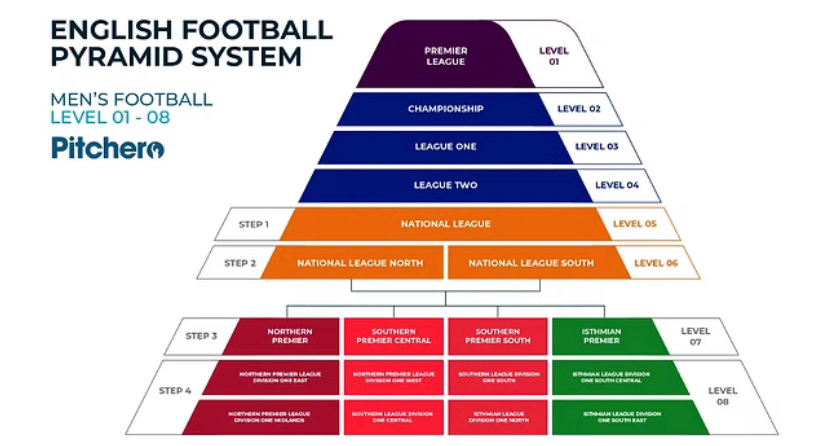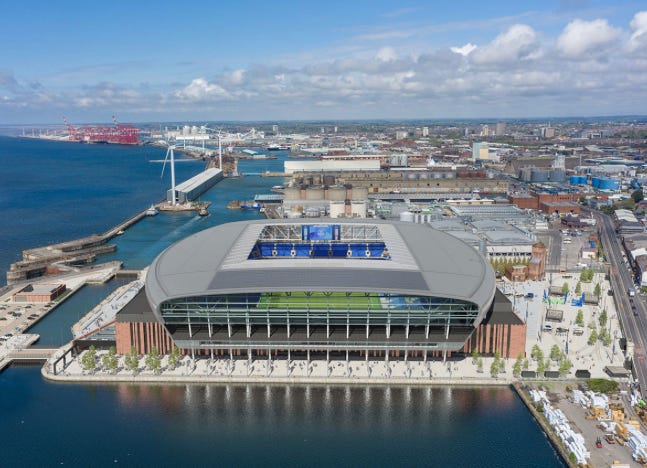A Poisoned Chalice?
Burnley and Leeds United secured promotion to the Premier League this week but can they avoid the recent phenomenon of coming straight back down again?
A Poisoned Chalice?
Growing up I have great memories of teams being promoted to the Premier League. Bolton Wanderers winning the league with 98 points and 100 goals boosted by the goals of John McGinlay, Sunderland becoming champions in 1998/99 with a massive 105 points, and of course the play-off final of the year before where Sunderland drew 4-4 with Charlton Athletic but were just edged out on penalties are all ones that stand out for me.
Supporters of Leeds United and Burnley celebrated wildly this week when it was confirmed that both of their teams had been promoted to the Premier League next season. They still have the title to fight for but Sheffield United have now dropped back far enough that they cannot catch the two above them and will be resigned to the playoffs. The question in hand though is whether promotion is actually all that it is cracked up to be.
The Championship is one of the most competitive football leagues in the world and every year teams scrap and fight for a shot at the big time. The promise of big matches against the likes of Liverpool, Manchester City and Arsenal are what football fans dream of but there is also money to consider too.
A Championship team generally earns around £11 million per season in terms of money that is afforded from the EFL and some that is filtered down from the Premier League, and those at the top will perhaps earn some more due to probably having more televised games. Promotion to the Premier League however means a potential increase of up to around £140 million for one season and around £300 million if the team can consolidate for around three years.
This is mostly down to TV rights as, despite constant calls for, and attempts at, reform, Premier League teams still hold all the power due to the popularity of their league and its clubs and players. Some money is trickled down through the pyramid but teams in the lower leagues still often face significant financial pressures just to stay afloat. This is why there is so much pressure on the teams who qualify for the Championship playoffs each year, with the final being talked about as the richest game in football.
In recent times though, the biggest problem doesn’t seem to have been getting to the Premier League but rather staying there. Up until 2023, there had only been one instance in the history of the Premier League when all three promoted teams went straight back down again. This happened in the 1997/98 season when Barnsley, Bolton and Crystal Palace were the unlucky ones.
However, without a minor miracle happening, this season will now mark two years in a row where the same thing has happened again. In 2023/24, Burnley, Sheffield United and Luton Town received the boost from reaching the Premier League for just one year before going straight back down again, and this year the same thing has already happened to Leicester and Southampton and will fairly certainly happen to Ipswich Town too.
When looked at in wider numbers, since the inception of the Premier League in 1992/93, 44% of promoted teams have gone straight back down again and a further 18% have been relegated within three years of reaching the top flight. Overall, 68% of promoted teams have failed to last more than five seasons at the top table.
In this same time frame, there have only ever been four seasons (2001/2, 2011/12, 2017/18 and 2022/23) where all three of the promoted teams have managed to stay up. Even when managing to survive, more often than not, the teams have been fighting it out in the lower half of the table rather than fitting in comfortably.
The highest ever finish by a promoted team was third place which was achieved by Newcastle United in 1993/94 and Nottingham Forest in 1994/95, both at least 30 years ago now. No promoted team has finished in the top five since Ipswich Town did it in 2000/01 and when Wolves finished in the top 8 in 2017/18, they were the promoted team to do so in 17 years.
Even teams that are fairly dominant in a competitive Championship season, such as Vincent Kompany’s Burnley side who amassed 101 points in 2022/23, aren’t safe from going straight back down these days. Between them, the three promoted teams last year averaged 0.58 points per game which was the worst record ever. This season it is currently sitting at 0.51.
A problem sometimes occurs where there are sides who appear to be just too good for the Championship and not quite good enough for the Premier League. Often these teams end up bouncing back and forth between the two. Norwich, Leicester, West Brom and Burnley have all been promoted back to the Premier League five times (this will be Burnley’s sixth).
The question then is why does this happen and why does the chasm appear to be coming bigger?
A lot of it is of course to do with money and what it allows those lower tier Premier League teams who have managed to survive for a number of seasons to do. Clubs who would traditionally have been viewed in this bracket such as Bournemouth, Brighton, Wolves and Crystal Palace have been able to strengthen their coaching staff and their squads to a point where they are now often trying to push further up the table rather than looking over their shoulders.
Talented young coaches and emerging players seem to have realised that a move to these clubs, and good performances whilst there, can provide them with requisite experience to then make a move to a bigger club with more prestige and earn a more lucrative deal. Time at a ‘smaller’ club now acts as something of a proving ground and puts them squarely at the front of the shop window when the next transfer period comes around.
As an example of this you only need to look at Brighton exports such as Alexis MacAllister, Leandro Trossard and Moises Caicedo who have gone on to enjoy successful periods at Liverpool, Arsenal and Chelsea respectively. This season Matheus Cunha of Wolves looks like he will most certainly be playing elsewhere come the end of the season. Players like these strengthen the clubs while they are there but also afford them significant return in transfer fees to allow them to go and scout the market for quality replacements.
The success of these mid- to lower-level Premier League teams also means that players aren’t necessarily in a particular rush to leave as they can still be afforded benefits such as cup runs or even European football. It also serves to make the gap even bigger to those who are floundering at the bottom.
The same can be said of coaches. Vincent Kompany enjoyed a successful start to life at Burnley and, despite getting relegated last season, had obviously shown enough for Bayern Munich to come calling. Similarly, Enzo Maresca helped Leicester to promotion last season and was afforded the opportunity of an upgrade to the Chelsea head coach position. In a world where loyalty is far less common, teams can find themselves trying to rebuild under a a new manager just when they should be trying to push forward.
Finally, investment has also meant that some Premier League teams have managed to vastly expand their worth and future prospects. Despite falling foul of Profit and Sustainability regulations (PSR) and incurring a points deduction as recently as last season, Everton have managed to secure funding for their new stadium at Bramley-Moore Dock and have now gained backing from the Friedkin Group and US billionaire Christopher Sarofim. Increased revenue from ticketing and further money to spend in the transfer market can surely only serve to strengthen their position.
Similarly, Brighton have been backed by the money of entrepreneur Tony Bloom. Not only have funds been invested into the club, but Bloom’s background running betting algorithms has allowed the club to be at the forefront of using data to identify potential transfer targets that have then gone on to make them money in transfer fees later on, as mentioned above. This has led to far greater performance in the league.
In the face of the pressure of coming up against all of these problems, those coming up from the Championship have a limited number of options. They can try to build a squad with enough team spirit to try and survive by guts and togetherness alone. They can aim to attract an upcoming ‘wonder’ coach whose tactics they can only hope will propel them forwards. Or, alternatively, they can overspend in the transfer market to try and stay up but then have to get a brand new squad of players to gel together immediately whilst also potentially facing PSR repercussions.
None of these are particularly appealing options and none have really proved consistently successful in the past. Teams that don’t invest as much, such as Luton Town or Ipswich Town, tend to struggle anyway. Even those who find a brilliant young coach, such as Kompany or Maresca, aren’t guaranteed to survive and will inevitably lose their manager eventually anyway. Clubs such as Blackburn Rovers, Bolton Wanderers and Nottingham Forest have all been guilty of overspending and have been hit with fines, points deductions or transfer bans as a consequence.
Despite all of this leading to worries for those who are embarking on a Premier League adventure, fans of Leeds and Burnley will still be salivating at the prospect of having a go. Against all odds, clubs have found ways to survive and prosper and they will be hoping to be the next to do so. They will just need to hope that their promotion will not be the poisoned chalice that it has proved to be in the past.
Sources: OPTA, BBC, Sporting Life and The Guardian










👍as usual Sam. Very interesting read. Thanks. BFF